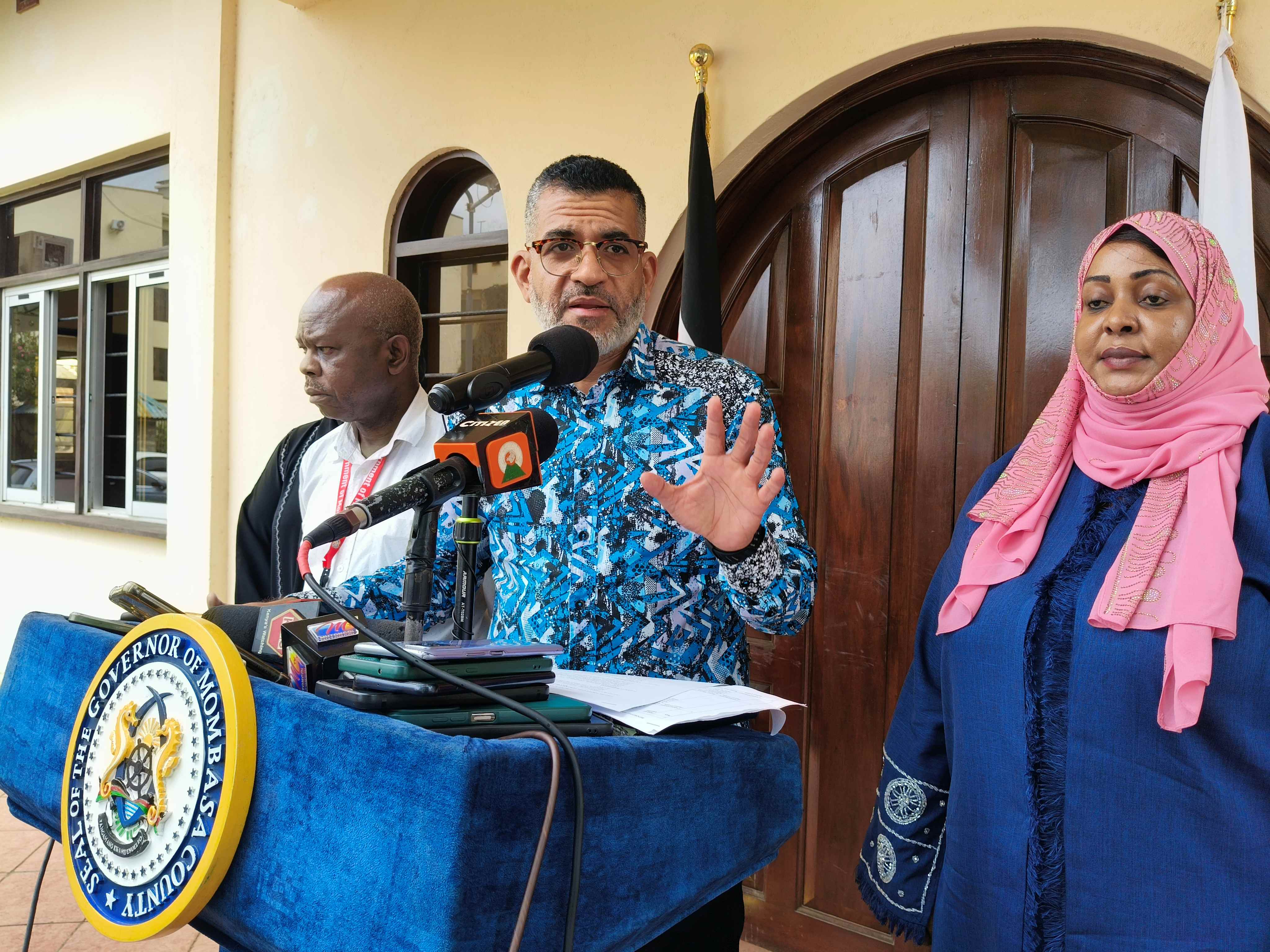

Mombasa water chief officer Albert Keino, Governor
Abdulswamad Nassir and water executive Kibibi Abdalla at the governor’s office
in Nyali on Tuesday /BRIAN OTIENO
Mombasa County loses about 60 per cent of the water it gets from other counties, the highest non-revenue water in the country.
This is because of illegal connections and
dilapidated infrastructure, which causes leakages, translating to about Sh100
million in lost revenue monthly.
Despite the demand of about 200,000 cubic metres
daily, the county barely gets around 40,000 cubic metres daily from the other
sources, including Baricho waterworks in Kilifi county, Marere springs from
Kwale county and Mzima springs in Taita Taveta county.
However, due to the illegal connections and
leakages, only about 20,000 cubic metres reach the residents.
The county, which does not have own sources of water, has now embarked on an operation to nab illegal connectors.
Mombasa Governor Abdulswamad Nassir said on Tuesday that the county will no longer sit and watch as Mombasa residents suffer from frequent
and unnecessary water shortages.
Already, 21 people, including two county
officials and several national government officers, have been charged with
illegal connections.
They were arrested in three days in Changamwe,
Kisauni and Mvita subcounties.
The county has also offered to
repair the pipes bringing water into Mombasa.
“We will fix the lines that leak between Mombasa and where the
water comes from at our own cost,” the
governor said.
Nassir said the county, which shares a power meter with Kenya Power, will share the cost.
“With all these programmes, Mombasa residents can
expect more water in their taps,” the governor said.
The angry governor equated illegal connection of water
to treason.
“When you cut people’s livelihoods and
you decide to use that water for your own selfish greed where you sell that
water at exorbitant prices while the rest of the places have no water, you are
being treasonous," Nassir said.
“It is not about political expediency. It is about ensuring that basic human rights—access and the right to clean water—is going to be attained."
The governor, who spoke in his Nyali office, urged the public to report any illegal connections and they will be rewarded.
“I will soon be issuing a hotline where we will be
giving confidential rewards for those people who are aware where these illegal
connections are," Nassir said.
“If we apprehend the person where the illegal connection
was done, we will be rewarding the whistleblower, who will remain anonymous.”
He said already, a reshuffle has been done at the
county level to energise the water department and the fruits have started being seen and felt.
Nassir said there is a place where a whole area has
no water just because an individual went and diverted it from the main
line to their place.
He said the operation, which will take place for
the next 100 days, will ensure that eventually, Mombasa residents get 80,000
cubic metres daily.
For the long-term, the Sh29.1 billion Mwache Dam
in Kwale county will have 136 million cubic metres of water and will be
supplying 186,000 cubic metres of water daily to Mombasa and Kwale counties for
domestic use and irrigation.
Mombasa is also in the process of conducting a hydrological
study to find out if there can be deep water wells within the county.
“If that works, we will not be relying entirely on
water coming from other sources from outside the county,” the governor said.
“As a county, we also tried to advertise for a
desalination plant but we did not receive positive responses,” Nassir said.
Instant Analysis:
The county is also in the process of rolling out smart meters, which will be more accurate in reading the usage by residents. Already, 1,000 people have been connected to the smart meters in Changamwe subcounty. The smart meters will also detect where leakages are and send an alert to authorities for rectification.














